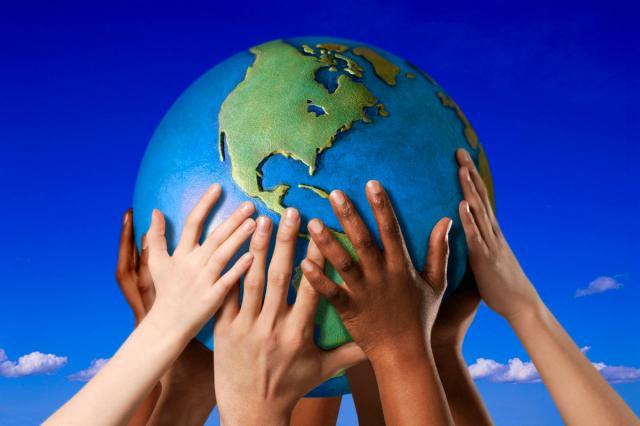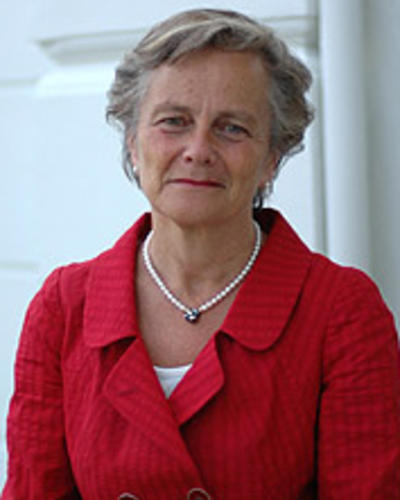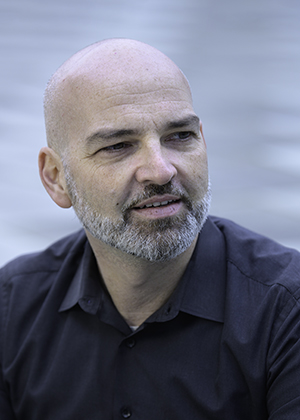Thinkers Cycle 2021: 'Language & Climate Change'

Thinkers Cycle 2021: 'Language & Climate Change'
Identities are expressed via language, ideologies are implicitly or explicitly embedded in discourse, truths and realities are created by language, alliances are formed and opponents attacked by means of language, and it is through language that solutions must be accepted.
The 2021 Thinker’s Cycle aims to explore the language of communication and debate on climate change. Language does not only serve to communicate facts and actions unambiguously, but also to convey more connotative meanings. Indeed, linguistic analysis allows us to broaden the perspective from factual (dis)information to the role of ideology, identity and worldview in climate change communication. Through linguistic analysis of both climate-aware texts and of the sceptical and denialist discourse, an awareness of the ways in which language persuades and manipulates can be created... An in-depth article on this project by its co-ordinators:
The language of debate and communication about climate change in Flanders
Introduction
Climate change (henceforth CC) is one of the greatest and most challenging problems the world is facing today. It is one of the greatest because of the catastrophic results we must expect if no or insufficient action is undertaken worldwide soon. It is one of the most challenging problems because solutions necessarily involve many stakeholders, not all of whom have the same interests nor the same willingness to react. Policies must nevertheless be negotiated and a course of action must be determined on the basis of political decisions. While information on the physical reality of CC comes from science (climatologists, biologists), communication about it is of crucial importance and is of interest to political scientists, psychologists, sociologists, communication scientists, and – as more recently realised – linguists.
The role of language in the CC debate has been recognised since the second half of the 1990s, and has received a great deal of attention, in media and communication studies as well as in linguistic studies, in various European countries. Controversies and argumentation centre on the persuasive role of language, identities are expressed via language, ideologies are implicitly or explicitly embedded in discourse, truths and realities are created by language, alliances are formed and opponents attacked by means of language, and it is through language that solutions must be accepted. Insight into linguistic processes and their effects in discourse on CC is therefore crucial to understand how the issues are being communicated at various levels and in various genres, such as policy documents and journalistic texts.
While denial of the reality of CC has become rarer, the debate still continues but has shifted to the solutions. In this area there is still controversy, as is clear from the stances taken by political parties and by stakeholders. That opinions can lead to polarisation is evident from exchanges in the social media. For these reasons we believe this Thinkers cycle can make a valuable contribution, not only in detecting the particulars of various types of discourse on CC in Flanders, but also in trying to understand the effects of the linguistic markers on diverse groups of citizens. From understanding it is but one step to formulating guidelines for effective communication by policy makers, journalists and other responsible stakeholders in various domains, including education. With these aims in mind, we want to bring together relevant research on the issues in Flanders, as well as stimulate new research.
Thinkers-in-residence
We are very fortunate to have found two excellent scientists willing to act as Thinkers. Their complementary expertise in linguistics and communication science, as well as their previous collaboration in other climate change projects, makes them exceptionally well placed to fulfil that role in the programme.
 Kjersti Fløttum is a Professor in the Foreign Languages Department of the University of Bergen (Norway). She has worked and published extensively on CC communication for more than a decade, and her contribution to the linguistic study of CC communication cannot be overestimated. Fløttum’s work has been ground-breaking in the sense that her approach has inspired much of the linguistic work on CC communication. Her focus is on the semantics and pragmatics of CC discourse, mainly in official documents at the national and European levels, and she has also dealt with comparisons between European countries – in particular Norway and France - in their CC communication. The following lines of her research are particularly innovative and a source of inspiration.
Kjersti Fløttum is a Professor in the Foreign Languages Department of the University of Bergen (Norway). She has worked and published extensively on CC communication for more than a decade, and her contribution to the linguistic study of CC communication cannot be overestimated. Fløttum’s work has been ground-breaking in the sense that her approach has inspired much of the linguistic work on CC communication. Her focus is on the semantics and pragmatics of CC discourse, mainly in official documents at the national and European levels, and she has also dealt with comparisons between European countries – in particular Norway and France - in their CC communication. The following lines of her research are particularly innovative and a source of inspiration.
First, Fløttum worked out a linguistic approach which drew attention to and brought together the relevant aspects of CC communication which can be studied for their role in expressing ideologies. These include for example the selection and frequencies of specific keywords as markers of stance and of the framing of CC. Frames (e.g. the money frame, scientific uncertainty frame, the catastrophe frame, the polar bear frame) set in motion a particular train of thought. Further, analysis of polyphony or heteroglossia, through which speakers and writers present their viewpoints in the context of other voices with which they engage for argumentative and persuasive purposes, contributes to laying bare conscious or unconscious strategic language use. The approach to CC texts as narratives allows, Fløttum argues, for detecting such crucial elements as who are heroes, victims and villains, and what resolutions to the problem are proposed. Such an approach is useful for comparing climate narratives and detecting causes of consensus and debate.
Second, special attention in Fløttum’s research is directed to the reception end, to how the non-expert stakeholders interpret the discourse. In her view, the linguistic study of official discourse is incomplete if it neglects the reader or hearer. As CC is bound to affect the coming generations, Fløttum has been especially interested in the opinion of young people. To find out what they think on the issue, she has set up two projects (in 2013 and 2020) in which she made use of written questionnaires completed by 16-18-year-old secondary school pupils. The questions in the first survey probed the young people’s knowledge of CC, the sources of that knowledge and their concern about CC. The results were compared with the national survey of the Norwegian Citizen Panel. The more recent survey focused more on solutions and on lifestyles, on what the informants think they already do, should do, want or do not want to do with regard to a green lifestyle. The results of these studies have been made public in articles in scientific journals and have attracted great interest in the press.
Thirdly, the strength of Fløttum’s approach is the unique combination of strictly meticulous linguistic analysis of relevant features of the texts with the broader perspective of political, social and psychological contexts. This approach needs interdisciplinary collaboration, which she has realised in the LINGCLIM project at the University of Bergen.
 Mike S. Schäfer is Professor of Science Communication in the Department of Communication and Media Research (IKMZ) at the University of Zürich (UZH). He is an internationally renowned and much solicited expert on CC communication, as reflected in his impressive publication record and his leadership roles in expert groups and national committees. He has studied CC communication in both specific contexts (Switzerland and Germany) and from a global perspective. As a close investigator of climate communication over the past decade, he has identified major recent changes which can be linked to the following general developments. The range of stakeholders in climate communication has considerably broadened and the fast changing media ecosystem has increased the involvement of non-scientists in debates about CC, mitigation and adaptation.
Mike S. Schäfer is Professor of Science Communication in the Department of Communication and Media Research (IKMZ) at the University of Zürich (UZH). He is an internationally renowned and much solicited expert on CC communication, as reflected in his impressive publication record and his leadership roles in expert groups and national committees. He has studied CC communication in both specific contexts (Switzerland and Germany) and from a global perspective. As a close investigator of climate communication over the past decade, he has identified major recent changes which can be linked to the following general developments. The range of stakeholders in climate communication has considerably broadened and the fast changing media ecosystem has increased the involvement of non-scientists in debates about CC, mitigation and adaptation.
In his research on climate science reporting, Schäfer investigates how it gathers, evaluates, selects, and presents information about CC, its causes and impacts, as well as ways to mitigate it. CC journalism used to be the domain of specialist reporters with elite science sources, but in the past decade more communicators, such as politicians, industry representatives or NGOs, have joined the debate in changing political and organizational contexts. This has dragged the climate debate out of the ivory tower of scientists and has in its turn, triggered further changes, which Schäfer has studied, such as new ideas of opinion leadership and a strong and rising impact of PR from various stakeholders, including academics, on climate reporting.
The proliferation of social media has vastly extended CC discourse. On the one hand, this has enabled the spread of conspiracy theories and science-related populism, both of which Schäfer has investigated. As a sometimes subtle variant of political populism, science-related populism suggests a morally charged antagonism between self-serving, so-called progressive elites who ignore ordinary people’s sovereignty and common sense. On the other hand, Schäfer argues, online and social media also offer positive affordances to bring science and the public closer together and to extend ‘citizen-science’ from a minority of highly educated, mostly male, persons to a much wider and diverse group. Schäfer recommends differentiating science communication in terms of both modes and platforms of communication according to different segments of the population who have different perceptions of science and rely on different sources. He has developed typologies distinguishing broad segments such as the ‘sciencephiles’, the ‘critically interested’, the ‘passive supporters’ and the ‘disengaged’. Members of these different segments exhibit specific patterns of media and information use. Schäfer’s research suggests that previously overlooked segments may be better addressed by digital online media or offline exhibitions and projects than via traditional science communication. His analysis suggests that this potential of citizen science is much greater than has hitherto been exploited.
Events
It is on the basis of this extensive research and in-depth expertise that the Thinkers will analyse the state of CC communication in Flanders and formulate policy recommendations in the contexts of education, media management, science communication, government, and dialogue with citizens. In consultation with the Thinkers and aided by the cycle’s task force, a number of fact-finding events about CC in Flanders are planned in the second half of 2021. Two introductory events have already taken place.
The cycle of fact-finding events was opened with the presentation of recent research about climate communication in the Flemish press and social media on 30 April. Renée Moernaut proposed the framing analysis of media representations of CC which she developed. She argued for an approach that is multimodal, analysing both text and image, and multilayered, distinguishing superframes and subframes. The two overarching frames are the hegemonic, anthropocentric frame, which represents CC action as a fight against nature as an external enemy, and the biocentric frame, which focuses on the interconnection between humans and nature and highlights internal problems within human society. In spite of the greater mobilizing potential of the biocentric frame, the anthropocentric frame was found to dominate in both legacy and social media. Ilse Boeren reported on interviews with climate scientists and journalists, who discussed their interaction in bringing news about CC to the general public. They agree on the necessity to create the conditions for open debate, but without giving deniers the spotlight. Scientists find that legacy journalism reflects the state of research reasonably well, despite sometimes focusing on the eccentric for its news value and tending to negative reporting. Both groups note the need to counteract non-consensus messaging on social media in its own environment.
The second introductory fact-finding event, on 3 June, was a round table session about the climatological, biological and political context of CC in Flanders. Piet Termonia presented the facts of CC measured up to now as well as a range of computer-simulations of future CC, dependent on variables such as emission scenarios. CC manifests itself in more extreme weather events such as heatwaves, droughts, and floods, which have very broad social impact on infrastructure, agriculture, urbanisation and health. Addressing all these requires a multidisciplinary approach. Termonia stressed the need to translate the statistics of CC and its impact into clear and engaging narratives, which provide stakeholders and policy makers with a basis to make smart decisions for mitigation and adaptation. Dirk Draulans debunked the false narrative harboured by some that Flanders will mainly benefit from CC, which will provide it with a Mediterranean-type climate and enriched fauna and flora. He stressed that the advantages will be vastly outnumbered by the disadvantages. A massive influx of climate refugees can be expected. In summer, heat waves and droughts will put stress on water provision and human health, while in winter floods will cause havoc. Indigenous animal species are threatened by weather extremes and by invasive species. Nicolas Bouteca and Lorenzo Terrière, finally, outlined the development of the Flemish and Belgian political climate debate since its emergence in the 1970s. The debate has moved from the periphery to the competitive heart of the political discussion, where political parties showcase their ideological convictions and vie for the electors’ favour. The discussion is further complicated by the splits typifying Belgian politics, in which more right wing Flanders is opposed to more left wing Wallonia. On concrete issues like low emission zones and road pricing, political parties have been seen to change their positions. Ideological prisms, the short-term horizon of the next elections, and a complicated state structure prevent parties from developing a long-term vision and action plan on CC.
The two main events planned for the second half of 2021 are, firstly, a two-day workshop on “The language of debate and communication about climate change” on 21-22 September and, secondly, the final colloquium at which the Thinkers’ report will be presented on 19 November. The events of 21 September and 19 November will be organized at the Palace of the Academies, the event on 22 September will take place at the University of Leuven. The aim of the workshop is to bring together and promote linguistic research into CC communication in, and relevant to, Flanders. Besides plenaries by the Thinkers, the workshop will feature papers on such themes as: (1) comparison of CC communication in Flanders and in other countries, (2) the language of young climate activists, (3) the framing of CC and other environmental threats, (4) the legal accountability of CC communication, (5) linguistic analysis of CC debates on social media. At the final colloquium, Kjersti Fløttum and Mike S. Schäfer will present their analysis of CC communication with reference to Flanders, and will formulate recommendations for improving CC communication. Representatives from education, media management, science communication, government, and dialogue initiatives will be invited to respond to the recommendations and reflect on their implications for Flanders.

